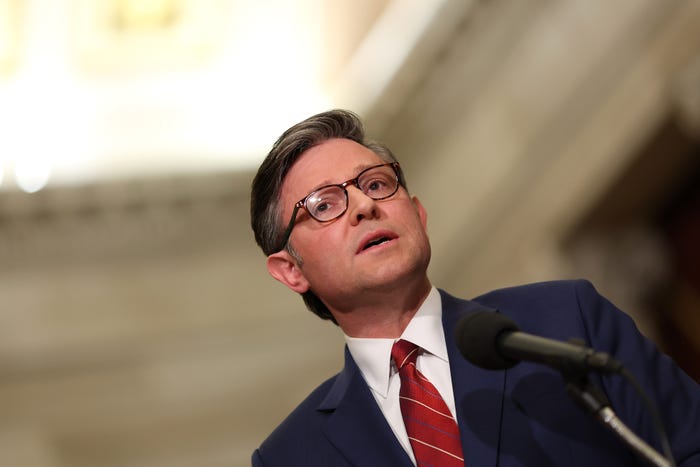Top Stories
Congress Salaries Frozen Again: No Pay Bump for 2024

UPDATE: Members of Congress will not receive a pay increase this year, keeping their annual salary at $174,000 for yet another year. President Donald Trump has signed a bill that prevents cost-of-living adjustments for lawmakers, a figure that has remained unchanged since 2009.
The legislation, which funds the government through January 30, 2024, includes a specific provision blocking any salary increase for Congress members. This decision comes in the wake of the longest shutdown in American history, highlighting the sensitive optics of increasing congressional pay while many federal workers faced financial hardships.
Lawmakers had nearly approved a modest pay raise last year, but the proposal was derailed by public outcry, including significant criticism from high-profile figures like Elon Musk. The inability to adjust salaries means that congressional pay will continue to lag behind inflation, with experts warning this could deter capable candidates from seeking office.
House Speaker Mike Johnson, who earns $223,500 due to his leadership position, acknowledged the stagnation of congressional salaries earlier this year. He stated, “Over time, if you stay on this trajectory, you’re going to have less qualified people who are willing to make the extreme sacrifice to run for Congress.”
Democratic Rep. Alexandria Ocasio-Cortez echoed this sentiment, emphasizing the need for salaries that reflect the economic realities faced by potential candidates. “If we want working-class people who don’t rely on independent wealth to represent people in Congress, we have to make it work,” she said.
According to the Congressional Research Service, if cost-of-living adjustments had been implemented since 2009, rank-and-file lawmakers would now earn about $221,600. This ongoing freeze raises concerns over the ability to attract diverse and qualified candidates to Congress, especially with the financial burden of maintaining residences in both their home states and Washington, D.C.
The decision to freeze salaries is not new; it has been included in annual funding bills for the last 16 years. This year’s bill reflects a continued trend to avoid increases in light of public sentiment and budgetary constraints.
With the current political climate and ongoing discussions about the future of federal employee compensation, all eyes will be on Congress as it navigates these sensitive issues. As lawmakers continue to serve without salary increases, the impact on future elections and governance remains a critical point of concern for the American public.
Stay tuned for more updates on this developing story as Congress addresses these pressing financial dynamics in the coming months.
-

 Business2 weeks ago
Business2 weeks agoForeign Inflows into Japan Stocks Surge to ¥1.34 Trillion
-

 Top Stories3 weeks ago
Top Stories3 weeks agoMarc Buoniconti’s Legacy: 40 Years Later, Lives Transformed
-

 Health3 weeks ago
Health3 weeks agoInnovative Surgery Restores Confidence for Breast Cancer Patients
-

 Sports1 month ago
Sports1 month agoSteve Kerr Supports Jonathan Kuminga After Ejection in Preseason Game
-

 Top Stories3 weeks ago
Top Stories3 weeks agoBOYNEXTDOOR’s Jaehyun Faces Backlash Amid BTS-TWICE Controversy
-

 Science2 weeks ago
Science2 weeks agoUniversity of Hawaiʻi Joins $25.6M AI Project to Monitor Disasters
-

 Science1 month ago
Science1 month agoChicago’s Viral ‘Rat Hole’ Likely Created by Squirrel, Study Reveals
-

 Lifestyle1 month ago
Lifestyle1 month agoKelsea Ballerini Launches ‘Burn the Baggage’ Candle with Ranger Station
-

 Entertainment1 month ago
Entertainment1 month agoZoe Saldana Advocates for James Cameron’s Avatar Documentary
-

 Politics1 month ago
Politics1 month agoDallin H. Oaks Assumes Leadership of Latter-day Saints Church
-

 Top Stories3 weeks ago
Top Stories3 weeks agoCarson Wentz Out for Season After Shoulder Surgery: Urgent Update
-

 Lifestyle1 month ago
Lifestyle1 month agoDua Lipa Celebrates Passing GCSE Spanish During World Tour









